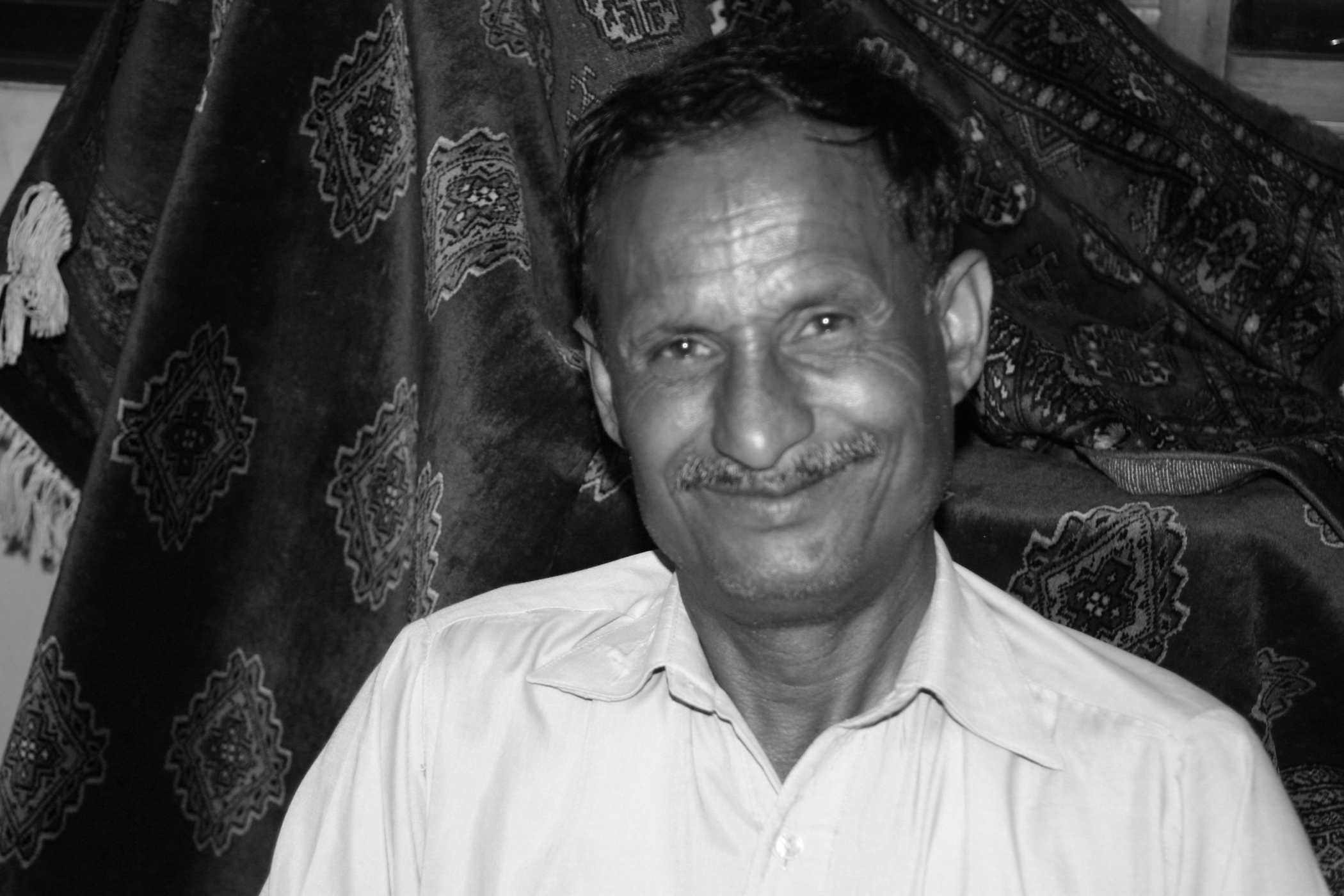In the Oriental Rug Room at Ten Thousand Villages in Ephrata, Pennsylvania a man perches on the edge of a pile of over 50 8’x10’ tribal carpets, sipping a cup of Pakistani green tea and watching as rug artisans first burn the back of a nearly completed rug with a natural-gas flame and then wash it with soap and water.
“We want customers to understand what goes into these carpets. You cannot understand how durable these rugs are until you see all that has gone into making them,” said Yousaf Chaman, rug program director. And the cup of green tea? “Just typical Pakistani hospitality,” said Chaman. “We want folks not only to see the artistry of Pakistan but also to experience the warmth of its culture and understand how fairness and peace can be achieved in the villages of Pakistan.
Bunyaad Builds Peace in the Villages of Pakistan
The rugs come from Bunyaad, an artisan group in Pakistan, also directed by Yousaf Chaman. Bunyaad, meaning “foundation” in Urdu, works to build strong foundations for peace in Pakistani villages by providing just working conditions, including fair wages, and creating a culture of respect and tolerance. Over the years, Bunyaad has grown to include over 850 families in roughly 100 villages throughout Pakistan. Bunyaad artisans, male and female, receive the same living wage, allowing them to build better homes and living conditions and create educational opportunities for their children. If not paid a living wage, artisans often resort to borrowing money from high-interest lenders to afford family necessities, beginning a downward spiral of debt. Bunyaad offers a no-interest loan to artisans to pay off creditors—a loan that is repaid at a rate that works with the family’s finances.
“Bunyaad builds peace by showing rug artisans respect,” explains Chaman. Bunyaad artisans choose the color and design of each rug they produce. They allow nature, tradition and inspiration to guide their creativity. Rug Room staff frequently travel to Pakistan, not on buying trips, but rather on learning trips. “We purchase everything the artisans produce, but our trips to Pakistan allow us to work side-by-side with the artisans and foster open communication,” said Chaman. If asked what they like about working for fair trade, artisans often say that it is the respect that they receive from Bunyaad – demonstrated most recently when they paid artisans lost wages from the devastating floods of August 2010.
Bunyaad breaks down barriers and inequalities by welcoming both Christians and Muslims into their program and providing equal opportunity for women and men. In the villages, there is very little opportunity for employment, especially for women. Work on the looms gives women autonomous year-round stable employment that can be done from home and over which they have control. With these earnings, women are finding increased financial independence and the ability to support their families. Having a wage-earning skill gives these women a sense of pride as well as an avenue to true social change for themselves and their family. “By working with women in their village homes, we are not empowering this woman and her family but her entire community,” said Jenni Leister, a Rug Room staffer for over 15 years, with over 35 trips to Pakistan.

Pakistan, has put four daughters through
high school by selling his rugs with the
Bunyaad artisan group. Photo: Dede Leister
Dede Leister has been working with Ten Thousand Villages Oriental Rug Program for seven years as Rug Event Coordinator. She’s passionate about the Pakistani people after traveling to Pakistan twice to learn from rug artisans.Many North American consumers are unaware of the hurdles facing Pakistan beyond the hunt for terrorism on the nightly news. The literacy rate in Pakistan is roughly 49% with female literacy significantly lower. Over 40% of the population lives below the poverty line, on less than $2 USD a day. Unemployment looms at 15% and inflation has climbed from 7.7% in 2007 to over 13% in 2010. Record floods in August 2010 lowered agricultural output and worsened inflation; reconstruction costs will further strain limited resources.
Bunyaad also supports ten schools throughout Pakistan, helping many children, especially young girls, have easier access to education. Sometimes the distance to the school is so great that parents do not feel comfortable letting their young girls walk to school. Liaqat, a village supervisor, lives in the village of Lengha, Pakistan and began working for Bunyaad 18 years ago. The economy of Liaqat’s village is struggling because of its proximity to the Indian border, as potential unrest deters businesses from locating there. Working for Bunyaad has enabled Liaqat to give his four daughters a high school education. Liaqat expresses how education holds the key to peace in Pakistan. He said, “All the children should be educated. Once they are educated, I don’t care if they become farmers or employees or start their own businesses, but they need to have an education.”





